Voice over: the essentials
In this article
· Online presence: essential in the 21st century
· Recording space: If you have a studio, have a good studio
· Quality equipment: If you charge pro rates, deliver pro quality
· Ergonomic environment: Invest in your future
· Pro attitude: Punctuality, politeness, skills
What are the voice over essentials?
I have been a French voice actor since 1994. I work in French (obviously!) and, being bilingual, also record voice overs in English with French accent. All this to say that voice actor is a real job indeed. And there are a few things you need to know to do it. Some are obvious, others... less so. Here is a non-exhaustive list of 15 things that are essential to professional voice over work.
1. A website
This is a subject I covered in the article The Pretty Haberdashery Shop Window which deals with websites for voice actors, so I'm not going to repeat myself. But if today you don't have a website and you're complaining that the amount of work is dwindling... really?
If you think that your list of contacts or your agent are enough, that your presence on a voice over platform is more than enough, you're forgetting that a large part of the work comes from international business. Without an international website, you don't exist. It's up to you. Yes, it costs money - but it's an investment, not an expense. I deal with this subject in the article Voice Over: Investing in Your Business.
2. A soundproofed and acoustically treated recording space
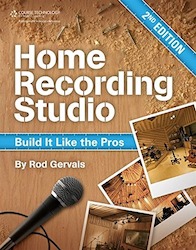
On the other hand, if you work all or part of the time from your private recording studio, it's essential that you read on. Before considering any equipment, the starting point is the environment in which you are recording. The first thing to do is to soundproof your booth: to prevent outside noise from getting inside. This is extremely difficult, but the physical laws of soundproofing are well known: mass, mass/air/mass, a combination of the two, helps to contain sound.
Once your space has been soundproofed, it is essential to treat it acoustically to avoid reverb, standing waves, etc. The proportions of the room also need to be taken into account, as do the non-parallelism of the walls and the ceiling with the floor. There are also various complementary solutions: absorption, diffraction, diffusion and reflection. Don't forget to leave a little life in the room with controlled reflection. Mat sound should not be confused with muffled sound.
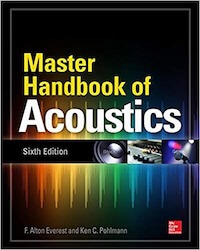
Having said that, it is possible to obtain a good result if you have studied applied acoustics and applied the recipes. I can only recommend that you study Rod Gervais's 'Home Recording Studio - Build It Like The Pros' and F. Alton Everest's 'Master Handbook of Acoustics', which are bibles on the subject. If you're interested in this subject (and you should be!), I talk about it in my article Remote Recording And Private Studios.
 3. A good sound card
3. A good sound card
A USB microphone may be enough... for podcasting. But no commercial studio has a USB microphone in its collection. Why not?
As you know, your microphone needs preamplification. But the preamp and sound card built into your computer are mediocre, even in a very good computer. So what are your options? An external sound card.
Of course, you can also choose a separate preamplifier found in channel strips such as the exceptional Avalon Vt-737 sp, the fabulous Manley Voxbox, or the legendary AMS Neve 1073, to name but a few, and connect them either to your sound card by bypassing its built-in preamp, or via a console.
But honestly, with the quality of preamps built into modern sound cards such as the SSL2+, separate preamps are beautiful, they add something to the sound for sure, you can send a bit more 'butter' with the adjustable gain (separate from the output), it's worth considering for your panoply of beautiful toys, but it's not essential for a private studio.
 4. A condenser microphone adapted to your space and voice
4. A condenser microphone adapted to your space and voice
Why a condenser microphone and not a dynamic microphone? Because dynamic microphones are not very sensitive and have a high level of self-generated noise. You need to preamplify more, which means even more background noise.
Condenser mics are much quieter, much, much more sensitive, don't need as much pre-amplification, which means that the recorded noise floor will be much lower. That's why, in any self-respecting commercial studio, the everyday mics are condenser mics.
Now, which condenser microphone? The better the mics, the more sensitive - and obviously more expensive - they are. The superior quality of these mics can be heard, but they require an irreproachable acoustic environment. A Neumann U87 in a voice over booth that is not acoustically perfect will bring out all its faults. The same goes for ribbon microphones, which also require excellent preamplification.
It is therefore preferable to choose a less sensitive, and therefore less expensive, microphone if your voice-over booth is not acoustically perfect. Also worth considering: super-cardioid condenser microphones such as the Sennheiser MKH416- which, thanks to their ultra-directional design, are more forgiving of less than perfect acoustic environments. The angle, inclination and position of these microphones in relation to the actor is crucial: within five degrees, you're out of your depth.
Finally, a microphone that's ideal for someone else won't necessarily match your voice - it's imperative to test, with your voice, in your acoustic environment. Finally, remember that we are voice-over actors, not singers, and that the aim is different; I developed the subject of microphones in my article The Microphone, That Obscure Object Of Desire.
5. A comfortable, quiet chair
Some people prefer to record standing up, which is imperative for very animated interpretations, in video games, dubbing or ADR, for example. But for more 'inward', intimate, calm or inspirational interpretations, I recommend working seated.
The reason for this? The more muscles you activate, the less freedom you have in your body: you can't deactivate the muscles needed for standing, which is in fact a permanent micro-balance, and far fewer muscles are engaged when sitting, provided the chair is ergonomically designed. And for a posed interpretation, being as relaxed as possible is paramount, for obvious reasons. "On the other hand, doing hours of e-learning or audiobooks standing up is not a viable option.
When you spend long hours sitting in a cabin, it's essential to take care of your health. Sitting for long periods affects your back and hurts your buttocks, creating tension that builds up and can eventually lead to serious illness. The solution: an ergonomic chair where everything is adjustable, with a flexible, breathable seat and backrest.
Personally, I invested in my health and bought the chair shown in the photo opposite: theHerman Miller Aeron Remastered. It's very, very expensive to buy (even if you can find second-hand ones from time to time on ebay), but believe me, I thank the Big Guy (my wife) every day for encouraging me to choose the best. I save an incredible amount of money on osteopaths. Well, my wife is an osteopath, but this way I don't have to bother her, I solve the problem at source!
6. Closed headphones
This is a subject I covered extensively in my article Headphones And Voice Over . You'll need closed headphones for recording - and semi-open headphones if you wish (they're more comfortable to listen to) for critical listening.
A pair of proximity monitors is also recommended for editing. If you're doing long-form e-learning, you don't have a sound engineer and you do your own de-rushing and cleaning on your DAW for hours on end, it's much less tiring than working with your headphones on, whether they're closed or semi-open.
7. A screen
It's impossible to have your studio computer in your voice over booth: it makes noise, and noise and a booth are incompatible, it goes without saying. So you need a screen. This screen must allow you to simultaneously see your DAW, the film you're working on, your script and perhaps also the participants in your Zoom. That's a lot of stuff, and a standard screen isn't enough.
The solution: two screens next to each other at an angle, or better still, the solution I chose, a wide curved screen like the Samsung C34H890WJ.
8. An inverter
You are a French voice actor working all or part of the time from your private studio, you've invested a lot of money in your equipment. Are you prepared to see it completely destroyed by lightning? And even if your insurance reimburses it, are you prepared not to work for a few days until you receive a replacement?
Invest in an inverter - it costs around 100 to 200 dollars/pounds. Insurance that doesn't cost the earth.
9. An ethernet cable
Wifi connections are, by their very nature, unstable. So much so that some studios require an ethernet connection between your computer and your router to work with you remotely. The solution? Connect your studio computer to your router physically, using an ethernet cable. Bingo, you've got a stable connection for 10 dollars.
10. A 5G key backup
If you work from your private studio, you need internet. Outages happen. If you have to cancel a session and your client urgently needs the takes, he'll replace you. A 5G key is the plan B that could allow you to continue your sessions even if your internet has decided to take a break. Of course, you can also use your mobile phone to share the connection if your package is big enough on data. To be checked beforehand, of course.
11. A watch (yes, I know, mobile phones also tell the time, I'm old)
Being on time is really the most important thing, out of courtesy, respect and professionalism, whether in a commercial studio or in a remote session from your private studio. Of course, certain unforeseen circumstances cannot be avoided, but do your utmost to eliminate any causes that could make you late.
Being on time means arriving early so that the session can start on time.
And when we have undertaken to deliver at a certain time, it means delivering at that time - or before, and giving advance notice if, for some reason beyond our control or another, we are unable to deliver on time.
12. Deodorant
I address this delicate subject in my article 20 Tips To Get Ahead In Voice Over. You can have the hygiene you want in your private studio, but for commercial studio sessions, do I really need to explain why? For the same reason, camembert and other powerful foods before a session in a commercial studio aren't a great idea either, and neither is alcohol. And you don't want to give the impression of arriving drunk at a session. It doesn't go down well.
13. Manners
It's obvious, and yet... whether in a commercial studio or in a remote session from your own private studio, listening is essential. And by that I mean listening physically - without interrupting.
Hello, thank you, have a nice day - in short, the ABCs of all communication. However, the number of emails that don't include any of these polite phrases suggests that courtesy and respect are disappearing arts. Fortunately, I'm sure you're one of those people who hasn't forgotten good manners!
14. Receive training BEFORE going to market
There's an adage that says "You never get a second chance to make a good first impression" and this is particularly true in voice over. If you send in a demo that isn't perfect, in terms of interpretation, technique and the codes of the trade, you'll burn out before you've even started. Now that would be a shame, wouldn't it?
I talk about voice over training in the article Voice Over Training, Coaching, Mentoring, and Scamming which I STRONGLY encourage you to read BEFORE you chose a voice over coach.
I also warmly encourage you to check out my Voice Over Dictionary, which will help you decode the voice over jargon — essential to master if you don’t want to come across as a noob during a directed session.
Talking about training, I offer coaching - if you're interested you'll find all the details here: voice over coaching and training.
15. Marketing
Marketing. Yes, you read that right, marketing. Of course, your website is one element of your marketing, but voice over marketing encompasses many other things. Every business needs it, and we're no different. I talk about this in my article Voice Over Marketing? Say what?
I hope you found this article interesting. Don't forget to share it with your colleagues who, like you, could benefit from it. They'll be grateful for your generosity, and so will I!
I invite you to add any points I may have forgotten in the comments, or to share your experience here and leave your suggestions or questions. I'll do my best to answer them.
PS: by subscribing to this voice over blog, you will have exclusive access to new articles before they are officially published. It's free so make the most of it, subscribe now !
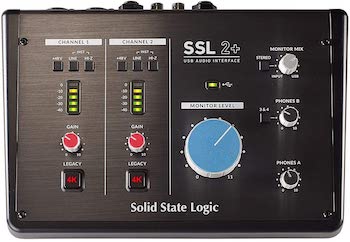 3. A good sound card
3. A good sound card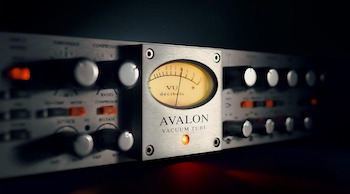
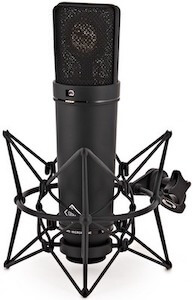 4. A condenser microphone adapted to your space and voice
4. A condenser microphone adapted to your space and voice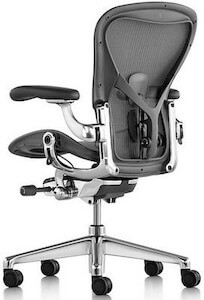
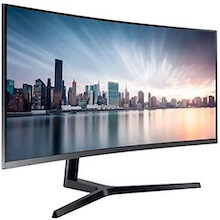
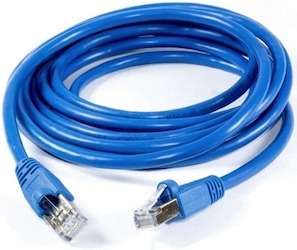

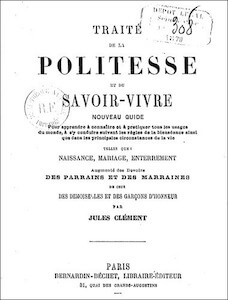





Merci beaucoup pour vos articles. Je veux me lancer dans la voix off :
J’ai essayé avec un Micro usb et il rend ma voix comme voilée et enfantine, aussi grave soit elle quand je parle, même la personne à côté de moi à dit que ma voix était modifiée.
Est ce que vous savez où tester des Micros sans les acheter tout de suite ?
Avec plaisir Verane – même le meilleur micro donnera un son médiocre si la cabine d’enregistrement n’est pas acoustiquement traitée, en fait il donnera un résultat encore moins bon qu’un micro moins bon en théorie, donc moins sensible. Je vous recommande de lire (de de relire) mon article à ce sujet https://voixoff.pro/micro-obscur-objet-du-desir/
Pour répondre à votre question, Thomann rembourse sans poser de question si le micro commandé ne convient pas.